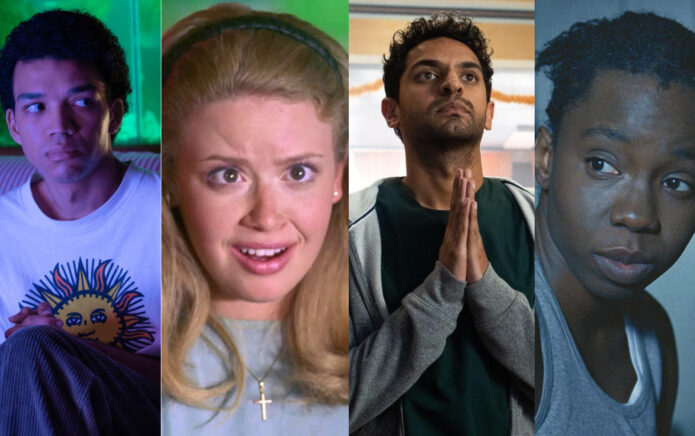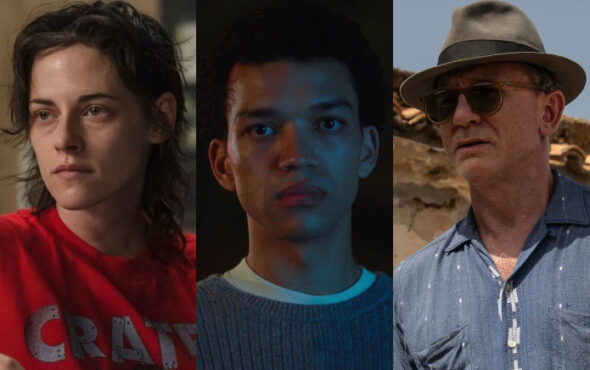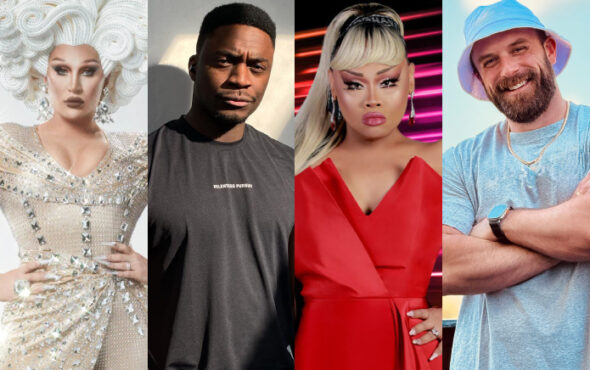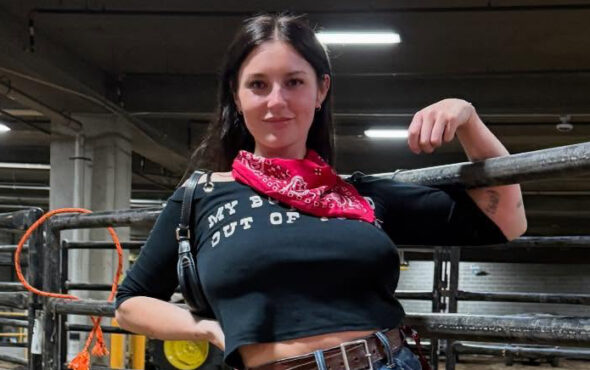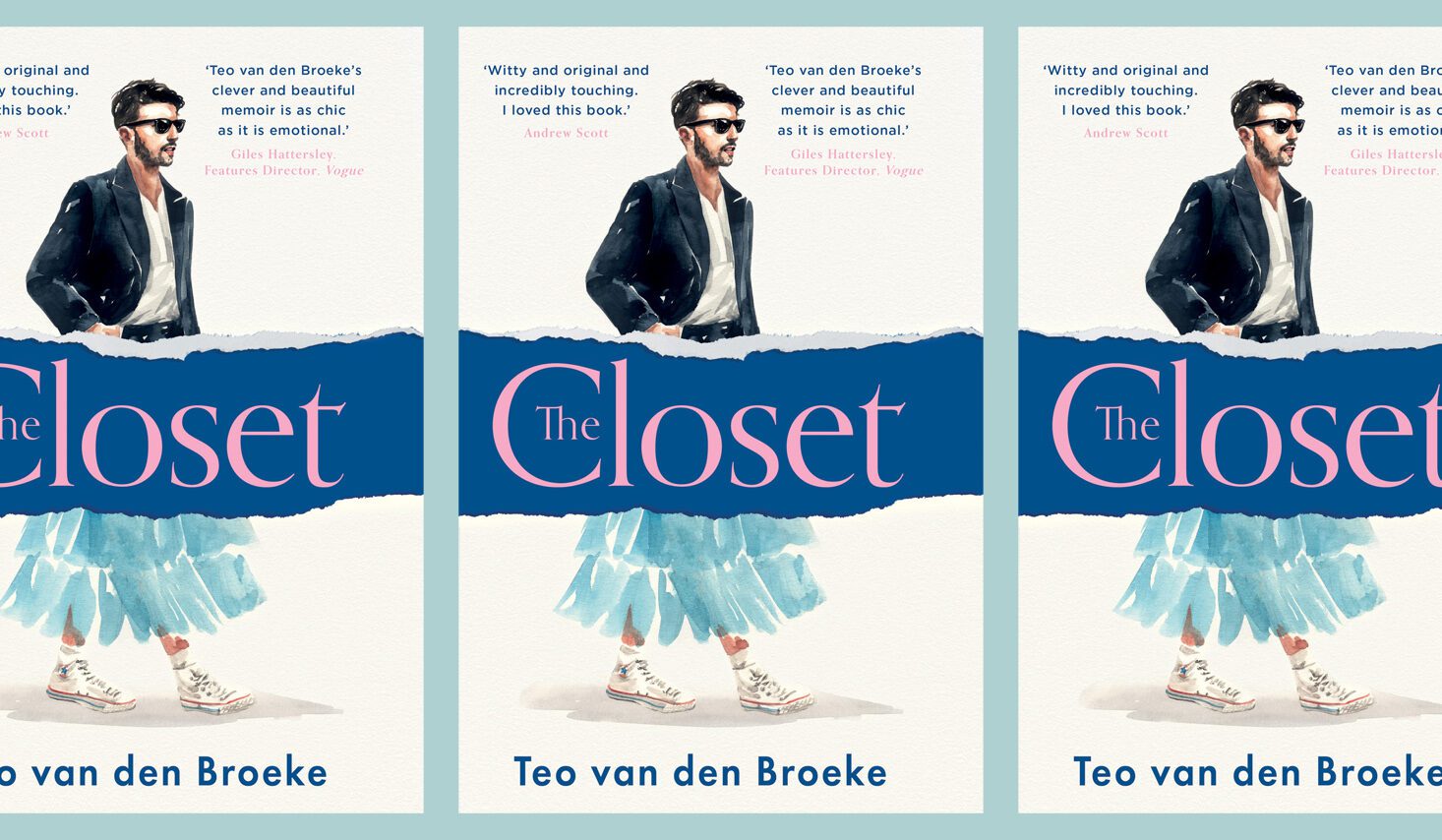
My new book The Closet is a coming-of-age tale told through the prism of the clothes which have draped and shaped my life. When I started writing it, I thought it would be a fun lockdown project to sink my teeth into – a smart vehicle through which to write about my love of clothes, and a welcome side step away from the shopping guides and trend stories which I’d been trotting out as a fashion journalist — a role I’d inhabited for over a decade.
What I didn’t expect was that the book would precipitate a bout of introspection so intense, that it made me question everything I thought I knew about myself – my acceptance of my sexuality included.
The crunch moment came as I was writing Chapter Eight, ‘The Vivienne Westwood T-shirt’, in the summer of 2022. The chapter tells the story of my coming out. I was 15 and I’d fallen head over heels in love with my best friend. I didn’t know how to manage my feelings and I hadn’t told anyone about my sexuality. No one apart from another pal, Jess Jones.
One night at a party, out of the blue, Jess took it upon herself to tell her boyfriend who, in turn, beat me up viciously. She then proceeded to reveal to everyone at school that I was gay. She also told my best friend that I was in love with him.
Life seemed to unravel at that point. I felt adrift and was so desperate for a life raft that I came out to my Mum over plates of shepherd’s pie on a Tuesday night. She responded exactly as I needed her to, by telling me that she loved me no matter what and booking a mini-break for us to Barcelona, where I bought the brilliantly flamboyant T-shirt which is the title garment of the chapter. I wore it to school when I returned from Spain, in the wake of my outing. It was a moment of sartorial emancipation in the mire of my turbulent scholastic experience.
I cried for hours as I wrote about this period for the book. It was an involuntary physical reaction and it surprised me. I had spent years telling anyone who asked how easy my coming out process had been – how readily I had been accepted and how it hadn’t mattered that I’d been treated shabbily at school, because I’d built a whole new group of friends as quickly as I’d lost the others. But as the words tumbled onto the page I began to wonder whether I had been as ok as I thought.
I was born in 1987. Peak millennial, I came of age in a time of Queer as Folk and the rise of the internet. Like many gay men of my generation, I had my first clandestine sexual experiences by way of fledgling hook-up sites Gaydar and Fitlads.net, and the prospect of having a long-term relationship seemed as far-fetched as winning the lottery, or meeting Vivienne Westwood to thank her for making my life-changing T-shirt.
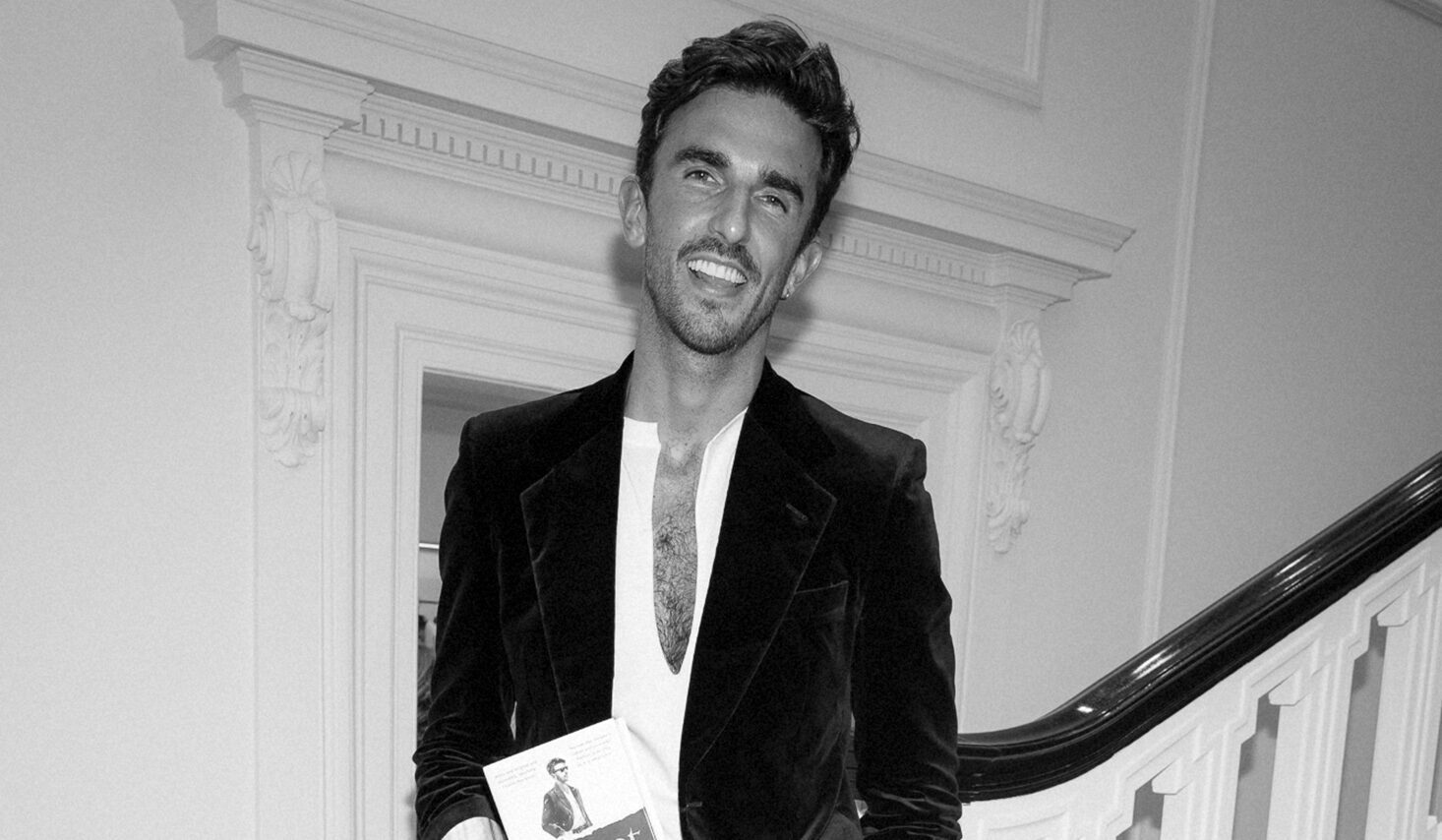
I had always been tall and I had a deep voice from puberty. As a consequence, when friends and family discovered that I was gay, they would regularly tell me that I was “alright for one of them” — a statement I wore as a badge of honour throughout my late teens and early twenties. I was relieved not to be identifiable as “a homo”. I might have liked boys, but somehow I was different to the camp caricatures which were depicted on TV – game show hosts, comedians and two-dimensional bit parts. Somehow, I was better than the community I hadn’t even nearly accepted I was inextricably a part of.
The toxic levels of internalised homophobia coloured my ability to build friendships with other gay men. As quickly as I’d made connections I would destroy them, unable to reconcile the idea that fellow gay people could be worthy of my friendship and, perhaps more painfully, that I could be worthy of theirs.
I started therapy after I finished writing Chapter Eight. I began reading The Velvet Rage (hard recommend) and I stopped drinking. I also realised, with the help of my therapist, that if I was ever going to be able to accept my sexuality, if I was ever going to be truly happy, then I needed to learn to love myself for who I was. The journey since has been as challenging as it has been rewarding. I’ve never felt prouder of who I am — of the community that I belong to — than I do now.
Much has changed since I was growing up in Surrey in the late nineties and early noughties. Society is generally more accepting than it was back then and queer characters on screen are usually more rounded than they were when I was a teenager. As such, when I wrote The Closet I entertained moments of doubt about whether the story I was telling was still relevant. I worried that today’s young people might not trouble themselves with “coming out” in the way that I did, and that my struggle was one confined to the past. But the truth is that intolerance persists in all facets of society, and the prospect and process of coming out remains a major ordeal for many.
According to statistics gathered by Stonewall “only half of lesbian, gay and bi people (46%) and trans people (47%) feel able to be open about their sexual orientation or gender identity to everyone in their family.” It’s a shocking statistic which becomes even more staggering as the parameters are broadened. Being gay is still criminalised in 64 UN member States — places where choosing to come out is as scary as it is dangerous.
Since The Closet was published I’ve received messages from readers telling me how much they relate to my story, and, in turn, how much the book might have helped them had they been able to read it when they were young. I’ve also been asked the biggest lesson I learned from the process of writing it – a question to which I always give the same answer: writing The Closet taught me how important it is for gay people, for all people, to engage in bouts of considered introspection and, in turn, deep self-love; as much to benefit individual mental wellbeing as the wellbeing of our collective community.
It is our responsibility, after all, to leave the next generation of young queer people with immaculately crafted hand-me-downs; generational heirlooms which speak of pride and power – of self-assurance and strength – rather than fear and shame. And we can’t do that without giving our closets a good clean out once in a while, now can we?
The Closet by Teo van den Broeke is now available to buy from Amazon and all good bookshops.
